PICKS OF THE MONTH
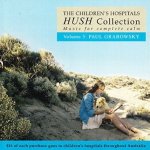 Paul Grabowsky
Paul Grabowsky
HUSH Collection 3: Music for Complete Calm (reissue)
HUSH Music Foundation (dist. Allegro)
HUSH 003
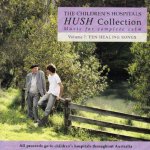 Paul Grabowsky
Paul Grabowsky
HUSH Collection 7: Ten Healing Songs (reissue)
HUSH Music Foundation
HUSH 007
I know what you’re thinking, because I was thinking it too: “Music for complete calm”? “Ten healing songs”? Oh, great — vapid New Age noodling with delusions of spirituality or (even worse) medical efficacy.
I cannot stress this enough: that’s not what we’re dealing with here.
Jazz pianist and composer Paul Grabowski was inspired some years ago, after conversations with a pediatrician at the Royal Children’s Hospital in Melbourne, Australia, to create music that would help promote an atmosphere of calm and healing for the children and the practitioners there. This led to a series of recordings, some of which are just now being made available in the United States. Grabowsky could indeed have gone the chord-washes-and-ocean-sounds route, but instead he did something improbable: he created music that is complex, interesting, and also soothing (and, yes, possibly even healing). Volume 3 in the series is a straight-ahead piano trio album consisting of twelve pieces, one for each month of the year. Every one of them swings solidly but gently, and features melodies that are structurally advanced but immediately accessible. Volume 7 is even more impressive: it features his trio as well as a string quartet and oboist. The path of jazz-classical fusion is strewn with the detritus of deeply embarrassing experiments, but Grabowsky negotiates it safely by not worrying too much about being either “jazzy” or “classical,” and instead simply focusing on writing beautiful and artful music and arranging it in a manner that’s sensitive to the unique characteristics of the instruments. At no point is his music boring, but at no point does he seem to be showing off. As any serious musician will tell you, this is a remarkable achievement. And the proceeds from sales of these discs are donated to childrens’ hospitals throughout Australia. On every level, these recordings are a triumph.
CLASSICAL
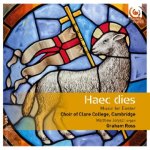 Various Composers
Various Composers
Haec dies: Music for Easter
Choir of Clare College, Cambridge / Graham Ross
Harmonia Mundi
HMU 907655
This very fine mixed-voice chapel choir has recorded four previous discs of music for the church year, including for Christmas, Passiontide, Ascensiontide/Pentecost, and All Saints/All Souls. Its fifth such program focuses on works for Easter, with pieces spanning five centuries by such composers as Samuel Scheidt, William Byrd, Patrick Hadley, and Charles Villiers Stanford, and including mutiple settings of such central scriptural texts as “Haec dies,” “Surrexit pastor bonus,” and “Terra tremuit.” The Choir of Clare College has an exceptional stylistic range, and is able to deliver Gregorian plainchant and contemporary chromaticism with equal authority, making this album a powerful listening experience from start to finish.
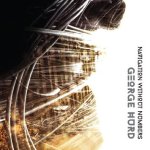 George Hurd
George Hurd
Navigation Without Numbers
The Hurd Ensemble
Innova (dist. Allegro)
937
Rick’s Pick
It’s one thing to create electronic classical music that sounds arty and modern and electronic; it’s another thing to make modern classical music that incorporates electronic elements into basically tonal compositions using conventional instrumental configurations and have it come out sounding both interesting and fun. (The Kronos Quartet has been doing this successfully for decades, but has had very little successful company.) Composer George Hurd and his ensemble accomplish that handily on this album, which features violin, viola, cello, piano, vibes, and other instruments in a variety of more-or-less standard chamber-music configurations, alongside electronically manipulated samples wielded by Hurd himself. The music is sometimes lyrical, sometimes clangorous, and sometimes (exhilaratingly) both. It’s a tremendous amount of fun but also dense and complex enough to be much more than merely fun. Highly recommended to all collections.
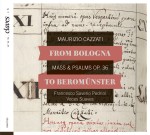 Maurizio Cazzati; Sebastian Scherer
Maurizio Cazzati; Sebastian Scherer
From Bologna to Beromünster: Mass & Psalms Op. 36
Voces Suaves / Francesco Saverio Pedrini
Claves (dist. Albany)
50-1605
I love recommending world-premiere recordings, especially of pieces that have been overlooked for centuries; there’s just a visceral thrill to hearing a piece come to life aurally after being in limbo for such a long time. When the work or works in question are as fine as these are, the thrill is even greater — and this recording really is a gem. Cazzati was a rough contemporary of Monteverdi working in Bologna. His Mass and his Laudate Dominum and Magnificat settings are notable not only for their sometimes quite forward-thinking style, but also for their relentless joyfulness, which is communicated beautifully by the Voces Suaves ensemble (singing one voice per part). The Cazzati works are interspersed with organ interludes by Sebastian Anton Scherer. Strongly recommended to all classical collections.
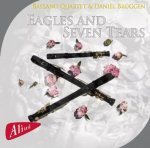 Various Composers
Various Composers
Eagles and Seven Tears
Bassano Quartet; Daniël Brüggen
Aliud (dist. Allegro)
ACD BL 087-2
 Johann Sebastian Bach; Toek Numan; Guus Janssen
Johann Sebastian Bach; Toek Numan; Guus Janssen
BRISK Plays Bach
BRISK Recorder Quartet Amsterdam
Globe (dist. Allegro)
GLO 5262
Rick’s Pick
Here are two very different, but each very attractive, recordings by Dutch recorder ensembles. The Bassano Quartet album is a varied program drawing on material predictable (pavans by Dowland, a fantasia by Purcell), somewhat less predictable (an arrangement of a Haydn flute quartet) and surprising (arrangements of works by Arvo Pärt and jazz composer Bob Mintzer). These performances are designed, in part, to highlight the Dream and Eagle recorders, modern instruments created by Daniël Brüggen with the goal of “develop(ing) a better balance within the recorder sound.” The music is lovely and the recorders do sound noticeably more powerful and balanced than conventional ones. The BRISK recording takes arrangements of Bach concertos, preludes, and chorales and intersperses them with modern compositions by living composers; the juxtapositions are fascinating and are very well chosen, and the quartet’s playing is exceptional. Both of these discs would make excellent additions to any early music collection, though if you must choose between them I think the edge would go to the BRISK title.
 William Byrd; Arvo Pärt; Thomas Tallis
William Byrd; Arvo Pärt; Thomas Tallis
The Deer’s Cry
The Sixteen / Harry Christophers
Coro (dist. Allegro)
COR16140
Speaking of interesting juxtapositions, this lovely disc features works by William Byrd–the greatest British composer of the Renaissance period and arguably the greatest ever–alternating with pieces by Arvo Pärt, the Estonian “holy minimalist” composer known for the ascetic harmonic simplicity and intense emotion of his choral works. The connection between them is more biographical than musical; both were countercultural figures in their time and place who faced fairly significant personal threat because of their religious beliefs and their work. But the stylistic contrast actually works beautifully on this program, the tracks alternating between the lush devotional polyphony of Byrd and the more astringent harmonic minimalism of Pärt. The Sixteen sing spectacularly, as always.
 Walter Rabl
Walter Rabl
Clarinet Quartet; Fantasiestücke; Violin Sonata
Wenzel Fuchs; Geneviève Laurenceau; László Fenyö; Oliver Triendl
CPO (dist. Naxos)
777 849-2
Walter Rabl acquired a publisher in 1897 after being recommended by Johannes Brahms, whose work is the most obvious stylistic antecedent of Rabl’s. The three compositions included on this disc were all written within a few years of each other, right around the turn of the century, and Brahms’ influence is strong with each of them. Rabl’s style is essentially conservative, and there are no audible hints of the musical revolutions that were at this point already on the horizon. The musicians on this recording, especially violinist Laurenceau and the wonderful clarinetist Wenzel Fuchs, make a powerful argument for the music’s importance despite its lack of stylistic innovation, and those with a taste for the Romantic will find plenty to enjoy here.
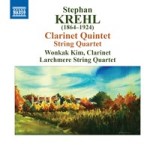 Stephan Krehl
Stephan Krehl
Clarinet Quintet; String Quartet
Larchmere String Quartet; Wonkak Kim
Naxos
9.70173
Rick’s Pick
Here’s another turn-of-the-century composer whose style of chamber music composition harked back explicitly to that of Brahms. Stephan Krehl is mainly remembered today as an academic music theorist, but this recording shows him also to have been an accomplished composer of utterly and unrepentantly old-fashioned chamber music in the Romantic style. Both the string quartet and the clarinet quintet are good enough that I went looking to see if he had published additional works for those configurations–and it doesn’t appear that he did. (In fact, his output of non-vocal chamber music seems to have been very meager.) Oh, well — all the more reason to acquire (and treasure) this very fine recording.
JAZZ
 Michel Benita & Ethics
Michel Benita & Ethics
River Silver
ECM
2483
Rick’s Pick
There’s a cardinal rule among jazz lovers; you may be familiar with it. That rule is: beware of any band that names itself after a branch of philosophy. And that rule has a corollary: if a jazz band names itself after a branch of philosophy and includes a koto player, run away. But wait! I can happily report that the rule should be suspended in the case of bassist Michel Benita and his band Ethics, which includes drummer Philippe Garcia, the redoutable guitarist Eivind Aarset, and flugelhorn player Matthieu Michel in addition to koto player Mieko Miyazaki. One’s hesitancy around the concept of jazz koto playing shouldn’t arise from any suspicion of the instrument itself, of course, which is one of the most beautiful in the world, but rather from questions about how well it will fit in with, say, flugelhorn and guitar. The answer is: spectacularly, and that’s partly because this music is “jazz” only in the loosest-possible sense. Also, very wisely, Benita decided early on that he did not want the koto to provide “exotic color” to the band’s sound, but rather to be a foundational and integral part of it. The result is ensemble music of simultaneously ethereal and dense beauty (I know, that’s quite a trick) that sounds simultaneously improvised and carefully composed (also quite a trick). Trying to describe it isn’t really worth the effort — it needs to be heard. Every library should buy it.
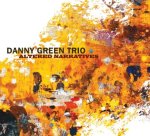 Danny Green Trio
Danny Green Trio
Altered Narratives
OA2 (dist. City Hall)
OA2 22128
Rick’s Pick
On his fourth release as a leader, pianist Danny Green does something highly unusual and impressive: he gives us an album that consists entirely of what is, in every discernible way, straight-ahead piano-trio jazz, with no wild harmonic or structural experimentation, but which nevertheless sounds entirely personal and original. It’s really kind of frustrating: I keep listening and trying to figure out how he does it, and I keep failing. Now, I should point out that three of these tracks feature a string quartet in addition to his trio, and that could reasonably be characterized as an example of structural experimentation. Fine, whatever. Nevertheless, even on those tracks this music feels both entirely straight-ahead and entirely new and personal, and dang if every single tune isn’t utterly gorgeous and engaging. The field of piano trio recordings is a densely crowded one, and standing out in it is tremendously difficult. Danny Green sounds like he’s doing so almost without effort. How does he do it?
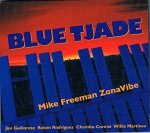 Mike Freeman ZonaVibe
Mike Freeman ZonaVibe
Blue Tjade
VOF Recordings
VOF 2015-6
Vibraphonist Mike Freeman is, like most jazz vibraphonists, a big fan of Cal Tjader, one of the pioneers of that instrument in a jazz context. Like Tjader, Freeman is not only a master of the vibes but also adept at placing the vibes in a small-combo, Latin jazz framework, which he does here on this very fine album of original compositions. Everything is light and bouncy, but never schlocky or silly. A quintet consisting of vibes, bass, sax/flute, and two percussionists is always going to be in danger of getting too busy, but Freeman keeps everything tightly controlled and, paradoxically maybe, the feeling is always loose and warm. Recommended to all jazz collections.
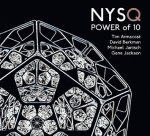 New York Standards Quartet
New York Standards Quartet
Power of 10
Whirlwind
WR 4680
In jazz parlance, “standards” are time-honored tunes (often taken from the American Songbook repertoire) that ensembles have been playing for decades and that adepts of the genre will usually recognize within the first couple of bars: tunes like “‘Round Midnight,” “I’ve Got Rhythm,” “Lush Life,” and “All of Me.” Therefore, a quartet that calls itself the New York Standards Quartet is staking out a musical territory. However, don’t let that fool you: these guys aren’t afraid to push the stylistic envelope a bit, nor are they shy about playing originals. On their tenth-anniversary recording, in fact, they offer a half-and-half program of standards and originals, and while they never get entirely “out,” they do produce some bracingly off-kilter sounds in among (and even within) their renditions of standards like “Embraceable You” and “Polkadots and Moonbeams.” And good for them. This kind of tension is what produces musical sparks, and the album is a joy.
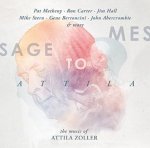 Various Artists
Various Artists
Message to Attila: The Music of Attila Zoller
Enja (dist. Allegro)
ENJ-9620 2
Never heard of Attila Zoller? I confess that I hadn’t either, but plenty of people that both you and I have heard of knew, worked with, and admired him: Pat Metheny, Ron Carter, John Abercrombie, Mike Stern, Jim Hall, etc. Zoller was a Hungarian guitarist and composer known for his slightly anomalous combination of warm, traditional tone and forward-thinking, expressionistic compositional style. This tribute album is comprised partly of recordings made expressly for the project and partly of tracks recorded elsewhere and previously released; all are Zoller compositions. While the musicians here come from a variety of stylistic backgrounds, their affection for the honoree is palpable throughout and the quality of both the compositions and the performances is consistently very high.
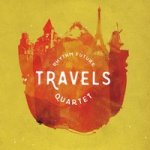 Rhythm Future Quartet
Rhythm Future Quartet
Travels
Magic Fiddle
No cat. no.
It’s always fun to hear a group creating a modern version of Gypsy jazz, and the Rhythm Future Quartet (violinist Jason Anick, guitarists Olli Soikkeli and Max O’Rourke, and bassist Greg Loughman) are doing just that. The group’s second album is simultaneously a celebration of straight-up Reinhardt/Grapelli-style acoustic swing and a determined effort to pull that tradition into the 21st century. What they are preserving is the music’s energy and joy; what they are messing with is its repertoire, its harmonic and rhythmic character (tunes in 7/8 and 5/8, anyone?), and its tendency towards purism (note, for example, the multitracked violin on the title tune, not to mention that piece’s overall structure). For the most part, these experiments work beautifully — only a rather clunky and ill-advised cover of John Lennon’s “Come Together” fails to cohere or to inspire. Great stuff overall, and a strong candidate for all jazz collections.
COUNTRY/FOLK
 Anna & Elizabeth
Anna & Elizabeth
Anna & Elizabeth
Free Dirt
DIRT-CD-0072
Rick’s Pick
Anna Roberts-Gevalt and Elizabeth LaPrelle are folk song collectors, arrangers, and evangelists in the old-school style — and by “old school” I’m talking about the Folk Revival era of the 1950s and 1960s, when teenage kids suddenly discovered the riches of the Child Ballad anthologies and the Folk Legacy field recordings and other troves of traditional songs and tunes and briefly made evangelizing for them counterculturally hip. In recent years there’s been a small resurgence in that approach, leading to the emergence of small clubs and coffeehouses in Brooklyn and Portland in which bearded and tattooed hipsters drink small-batch artisanal bathtub gin while listening to 300-year-old songs performed by young people intoxicated with those songs’ deep and astringent beauty. Look at this trend on its surface and make fun of it if you want, but if you take the time to listen carefully you’ll find many gems of interpretation, including this stunning album, which features songs both obscure and familiar in arrangements both new and old, sung by voices made rich and strong by genuine love and respect for them. You’ll also hear the best rendition of “A Voice from on High,” ever — which is saying something. Recommended to all collections.
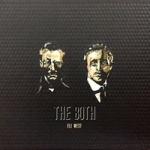 Eli West
Eli West
The Both
Self-released
No cat. no.
Rick’s Pick
Anna & Elizabeth turn up as guest artists on this quiet and beautiful gem of a concept album too, which is led by Eli West and features six songs in two versions each, one vocal and one instrumental. But the vocal/instrumental duality isn’t really the binding concept: rather, this is an album about West’s two grandfathers, one who served in the military in World War II and ended up as a prisoner of war, the other who served in a very different capacity as a conscientious objector and coordinated the shipping of pregnant cattle to Spain. The songs include such familiar fare as “Lonesome Valley” and “The Lone Pilgrim,” and guest musicians include not only Anna & Elizabeth but also guitarist Bill Frisell(!) and mandolinist John Reischmann. Both the vocal versions and the instrumentals are delivered with exquisite care and delicacy, and will leave you with a feeling that is hard to describe. All libraries should pick this one up.
 Mark Erelli
Mark Erelli
For a Song
Self-released
No cat. no.
Boston-based singer/songwriter Mark Erelli has been quietly producing solo albums for some years now while also working as an in-demand sideman, playing alongside the likes of Lori McKenna, Faith Hill, and Tim McGraw. On his first solo effort since 2010’s Little Vigils, he’s in a reflective mode, looking back on his own life and career and creating new characters and stories as well. There are moments on this album when he sounds uncannily like Paul Simon (listen to his voice on “Analog Hero,” in particular), but the songs are deeply personal both stylistically and lyrically. The slide guitars and the twangy Telecasters and the Hammond organ rub up against faintly rock steady rhythms, and the ballads greatly outnumber the midtempo numbers — there are no rave-ups. The whole album is gorgeous and at times borders on heartbreaking.
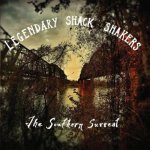 Legendary Shack Shakers
Legendary Shack Shakers
The Southern Surreal
Alternative Tentacles
Virus 476
Seeing that they are now recording for Alternative Tentacles (Dead Kennedys old label) and noticing that the album title is The Southern Surreal, one might easily be forgiven for expecting this band’s 20th-anniversay recording to be an onslaught of screaming psychobilly or some kind of nightmarish Southern Gothic gorefest. It’s neither, though: it’s an all-fun excursion into neo-rockabilly, honky-tonk polka, and country-rock, with a definite punk edge but nothing you could reasonably categorize as assaultive or even musically confrontational. I’ll bet you anything their live shows are pretty crazy, though. And there’s a fun spoken-word cameo from Billy Bob Thornton on which he sounds like he’s channeling Tom Waits.
ROCK/POP
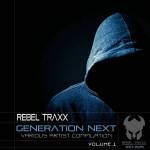 Various Artists
Various Artists
Generation Next — Volume 1 (DIGITAL ONLY)
Rebel Traxx
RTA006
Rick’s Pick
The term “bass music” encompasses a fairly wide variety of subgenres: jungle/drum’n’bass, dubstep, UK garage, and so forth. The Rebel Traxx label deals in a particularly deep and dark version of bass music — on this compilation you won’t hear any brostep ravers or house-derived party anthems. Instead, what you get are dark, spacious, deeply dubwise compositions that tend to promote contemplation more than booty shaking. And because Rebel Traxx is working with emerging artists, this compilation is not only useful as a great listening experience but also as a prompt to explore further; standout tracks like Dar Kist’s “Dekadance” and Alert’s “Cauldron” should send you straight to Soundcloud looking for more by these artists. Unfortunately this release is not available in physical formats, but those libraries that are experimenting with digital music collections should jump at the chance to acquire this excellent compilation.
 Enter Shikari
Enter Shikari
Mindsweep: Hospitalised
Play It Again Sam
5037092
Speaking of bass music, some readers may remember that I recommended the latest album from British post-hardcore giants Enter Shikari last year. In that review I mentioned that the band combines screaming hardcore punk and bass music in a way that’s quite unusual. On Mindsweep: Hospitalised it’s that second aspect of their sound that comes to the fore: it consists of tracks from Mindsweep remixed in a drum’n’bass style by producers from the Hospital Records stable. The result is brilliant, of course, and it makes a very fine companion to the original album — while continuing to exemplify Enter Shikari’s motto: “Abusing music’s worthless genre boundaries since 2003.”
 Thomas Ragsdale
Thomas Ragsdale
Dear Araucaria (EP)
This Is It Forever
TIIF25
I don’t normally review EPs in CD HotList — not because I have anything against them, but because my time is scarce, and so is your budget, and it seems better to occupy my attention and yours with full-length albums. I’m making an exception in this case because the music is just so freaking beautiful. Thomas Ragsdale’s EP (only available, annoyingly, as a cassette-with-free-CD or as a digital download) is an all-too-brief collection of ambient pieces composed entirely of treated guitar sounds, most of them unrecognizable as guitar. Every track floats like a cloud bank made out of ice cream and Percoset, and the program as a whole is the most perfect afternoon nap soundtrack I’ve ever heard (and I own a complete library of Brian Eno’s ambient music). This is one of those releases that immediately sent me scampering to the artist’s back catalog, looking for more.
 Panic Is Perfect
Panic Is Perfect
Cellspace
Strange Loop
No cat. no.
This indie-pop band from San Francisco occupies a sort of deceptively-sunny niche that seems to be becoming increasingly popular these days. Or I don’t know, maybe the sunniness isn’t deceptive — the older I get, the harder it is for me to sort out the irony from the pseudo-irony and the post-meta-pseudo-irony. Here’s what I do know: the sunniness is perfectly real in a musical sense, and this album comes to market just at the time when your patrons might be looking for something new to blast on their car speakers while driving with the top down. And when you’re singing along at the top of your voice with your hair whipping in the wind, the irony/metairony distinction becomes pretty much irrelevant. Very nice stuff.
 Enemy Planes
Enemy Planes
Beta Lowdown
Rock the Cause
No cat. no.
On their debut album, the Minneapolis-based Enemy Planes work in a sweet-and-sour mode: dreamy atmospherics within which minor-key melodies soar and drift while drums alternately prod and skip, and guitars sometimes stab and scrape and sometimes float like cloud formations. Song titles like “Bare Your Teeth” and “We Want Blood” should not mislead you: these guys aren’t vicious or nasty, but they’re definitely thinking complicated thoughts about life and love and they don’t seem to be sure what their conclusions are. Just like the rest of us, I guess. In the meantime, those prodding/skipping drums and stabbing/scraping/floating guitars sure do blend nicely with the light and multilayered vocals.
WORLD/ETHNIC
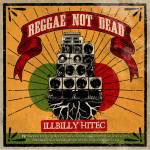 Illbilly Hitec
Illbilly Hitec
Reggae Not Dead
Echo Beach
111
Rick’s Pick
Once again, the reggae group with the worst band name in the history of reggae bands has come out with the best reggae album of the year. And they’re from Berlin! Which isn’t actually that surprising, give how much exceptionally fine reggae gets produced in that city every year. Illbilly Hitec’s generously-packed second album boasts a real grab-bag of multicultural elements, with cumbia beats rubbing up against rockers and one-drop reggae rhythms and guest vocalists singing and chatting in multiple languages. So what if they seem to be arguing against an assertion no one is making — did someone say reggae is dead? And why three separate songs on that same theme? — it’s fun to hear everyone repeatedly and gleefully asserting reggae’s continued vitality while simultaneously demonstrating it, and doing it so sweetly and danceably. Highly recommended to all collections.
 Silva
Silva
Júpiter
Six Degrees
361234
Brazilian singer-songwriter Silva has made a name for himself with lush and dense arrangements, but on his third full-length album he strips things down to a minimum — not a stark or bare minimum, but a warm and gently propulsive minimum that makes maximum use out of a handful of electric and electronic instruments. Like so much Brazilian pop music, Silva’s songs are soft on the outside and crunchy on the inside, with propulsive beats juddering along beneath the quiet and breathy vocals and the gentle guitars and keyboards. The album’s unifying lyrical theme is apparently astronomical, but it will be tough to follow unless your Portuguese is pretty strong. I found the album tremendously enjoyable without understanding more than a few words.
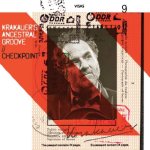 Krakauer’s Ancestral Groove
Krakauer’s Ancestral Groove
Checkpoint
Table Pounding
TPR-003
Rick’s Pick
Clarinetist David Krakauer has been conducting a musically idiosyncratic and deeply personal exploration for the past 25 years, digging into his Jewish family’s Russian-Polish past and coming up with all kinds of musical (and other) stuff in a variety of styles: classical, klezmer, jazz, avant-garde, funk, electronica. All of it he brings home and refashions into music that has no reasonable label — though on this album, on which the core band consists of guitar, bass, drums, and sampler, the constant stylistic thread is a sort of sampladelic jazz-funk with recurring klezmer themes. As a clarinetist Krakauer is not only a stone virtuoso but also a genuinely fun and exciting player, and his band pushes him to new heights here. Recommended to all collections.
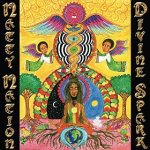 Natty Nation
Natty Nation
Divine Spark
iNatty
INATTY015
Here’s something you don’t see every day: a reggae album that significantly incorporates references to principles of meditation, kundalini yoga and astrology. I mean, you’re going to listen to an awful lot of reggae before you encounter a couplet like “Balance the chakras in the spine/Balance the gross and the refined” — especially in the context of a thick, elephantine rockers groove. And that’s a big part of what makes this album so much fun: musically, it’s classical 1970s-style roots reggae; lyrically, it’s an almost pantheistic invocation of all-purpose spirituality that excludes no one and adheres to no particular creed. If you’re annoyed by weird metaphysics then I’m guessing you’re not much of a reggae listener — but if the metaphysics starts annoying you, just focus on the grooves. Highly recommended.